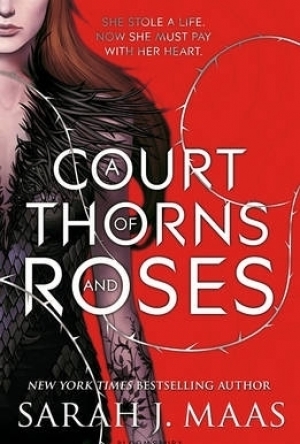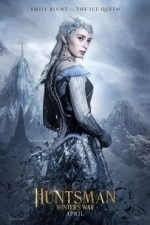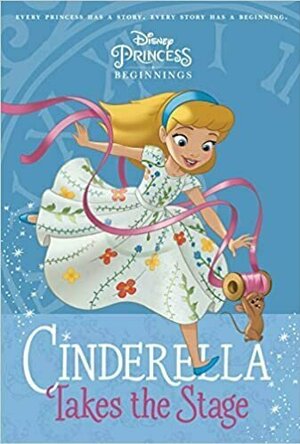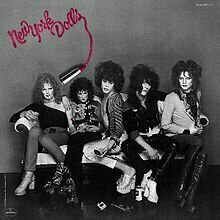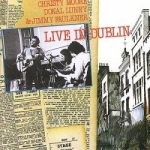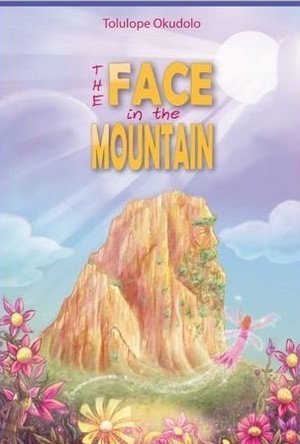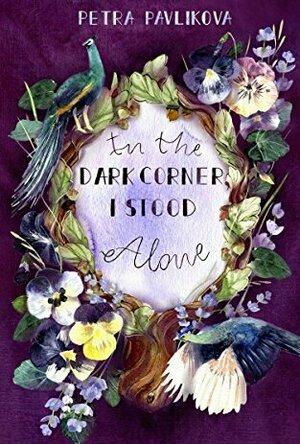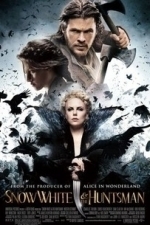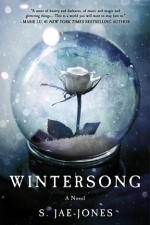Search
Dana (24 KP) rated A Court of Thorns and Roses in Books
Mar 23, 2018
Contains spoilers, click to show
Oh my goodness.
I absolutely adored this book! I am a huge sucker for any kind of fairy tale retelling and this one did not disappoint!
Through about the first half of the book, I had this warm, floaty kind of feeling in my chest. The writing actually made me feel like I was in love (or what I assume it to feel like). The way the characters talked to each other and interacted just made me feel so good about this book.
Speaking of the characters, can I say well written? Because, wow! I felt really connected to the characters (especially Feyre's sassy-ness and care for her family). They were very well written and drawn out. I didn't feel like they were flattened or abused in any way, even when they were being beaten up on the pages. There was a great deal of respect that was shown to all of the characters in this book. I really enjoyed the strength that Maas gave to each of her characters. It was as if they had their own way to deal with their weaknesses and strengths. They felt so real! I think what helped with creating this reality was making some of the characters seem super awkward at times. I mean, everyone gets awkward, but the way it was done was to show how the characters really were, not necessarily how the narrator was seeing them.
The plot was amazingly paced. I didn't feel like I was waiting for something exciting to happen because it was always happening. Even down to the smallest of parts in this novel were exciting. But even then, it didn't feel too over the top in excitement. There was a great balance between pacing and excitement (I have said that word too many times in this review, but who cares!)
I didn't feel like there was much missing from this book except for more pages. I didn't want it to end!!
If I could, I would give this a higher rating than a 5 star because it was just that amazing!!
I recommend this to anyone who adores fairy tale retellings, fantasy, fairies, or just a damn good read. Honestly, if you haven't picked this book up, I really recommend that you do. I am kind of kicking myself for not picking up this book sooner!
******Also, spoiler-ish thing ahead:*******
*
*
*
*
*
*
I just want to know, did anyone else guess that riddle when they first read it, because I did. I started yelling and cheering at the end part when she figured it out!!
I absolutely adored this book! I am a huge sucker for any kind of fairy tale retelling and this one did not disappoint!
Through about the first half of the book, I had this warm, floaty kind of feeling in my chest. The writing actually made me feel like I was in love (or what I assume it to feel like). The way the characters talked to each other and interacted just made me feel so good about this book.
Speaking of the characters, can I say well written? Because, wow! I felt really connected to the characters (especially Feyre's sassy-ness and care for her family). They were very well written and drawn out. I didn't feel like they were flattened or abused in any way, even when they were being beaten up on the pages. There was a great deal of respect that was shown to all of the characters in this book. I really enjoyed the strength that Maas gave to each of her characters. It was as if they had their own way to deal with their weaknesses and strengths. They felt so real! I think what helped with creating this reality was making some of the characters seem super awkward at times. I mean, everyone gets awkward, but the way it was done was to show how the characters really were, not necessarily how the narrator was seeing them.
The plot was amazingly paced. I didn't feel like I was waiting for something exciting to happen because it was always happening. Even down to the smallest of parts in this novel were exciting. But even then, it didn't feel too over the top in excitement. There was a great balance between pacing and excitement (I have said that word too many times in this review, but who cares!)
I didn't feel like there was much missing from this book except for more pages. I didn't want it to end!!
If I could, I would give this a higher rating than a 5 star because it was just that amazing!!
I recommend this to anyone who adores fairy tale retellings, fantasy, fairies, or just a damn good read. Honestly, if you haven't picked this book up, I really recommend that you do. I am kind of kicking myself for not picking up this book sooner!
******Also, spoiler-ish thing ahead:*******
*
*
*
*
*
*
I just want to know, did anyone else guess that riddle when they first read it, because I did. I started yelling and cheering at the end part when she figured it out!!
Gareth von Kallenbach (980 KP) rated The Huntsman: Winter's War (2016) in Movies
Aug 6, 2019
Mirror, mirror on the wall who is the fairest of them all?”
Once again the story that has captivated millions throughout the world returns to the big screen with a prequel and sequel to Snow White and the Huntsman. At the end of the first film, the evil mirror-obsessed queen Ravenna (Charlize Theron) is defeated by Snow White (Kirsten Stewart) and Eric the Huntsman (Chris Hemsworth). The second film begins with the revelation that Ravenna has a sister named Freya (Emily Blunt), who was completely normal until she made the mistake of falling in love and getting pregnant, which endangered the sinister plans of Ravenna. Under unknown circumstances Freya loses the love of her life and her baby, causing so much pain and suffering , she becomes the sad and lonely Snow Queen , leaving her sister to conquer kingdoms on her own .
The Huntsman is related to Ravenna, not only because of Snow White, but because he and his wife Sara (Jessica Chastain) were raised and trained in the kingdom ruled by Snow Queen Freya who, as a survivor of unthinkable heartbreak, has one big rule all her “children” must obey: Do not love. Ever.
Long story short, Freya’s reign threatens Snow White’s kingdom and it’s up to Eric, Sara, and their companions to stop her. And although her role is smaller here than in the original film, Queen Ravenna returns to both aid and manipulate her youngster sister Freya.
There might not be Seven Dwarves this time around, but the four this sequel does include are hilarious and offer some of the cleverest comebacks I have heard in a long time. Nick Frost’s Nion is the only dwarf from the original to return, and he’s joined by his brother Gryff (Rob Brydon) and two females, Mrs. Bromwyn (Sheridan Smith) and Doreena (Alexandra Roache).
I can say that I really liked this film, and as a Charlize Theron fan I most enjoy her work especially as an evil, selfish witch obsessed with eternal beauty. And of course having Chris Hemsworth in the screen is always a delight for our eyes. The special effects are not distracting at all; they’re actually the complete opposite. The quality is outstanding which makes it easier to be transported to a magical world filled with fairies and enchantments.
Although I have to say it is not as family-friendly as the fairy tale inspired film, it is definitely funny, including a lot of action and fight scenes with a story line that entertains the audience.
Once again the story that has captivated millions throughout the world returns to the big screen with a prequel and sequel to Snow White and the Huntsman. At the end of the first film, the evil mirror-obsessed queen Ravenna (Charlize Theron) is defeated by Snow White (Kirsten Stewart) and Eric the Huntsman (Chris Hemsworth). The second film begins with the revelation that Ravenna has a sister named Freya (Emily Blunt), who was completely normal until she made the mistake of falling in love and getting pregnant, which endangered the sinister plans of Ravenna. Under unknown circumstances Freya loses the love of her life and her baby, causing so much pain and suffering , she becomes the sad and lonely Snow Queen , leaving her sister to conquer kingdoms on her own .
The Huntsman is related to Ravenna, not only because of Snow White, but because he and his wife Sara (Jessica Chastain) were raised and trained in the kingdom ruled by Snow Queen Freya who, as a survivor of unthinkable heartbreak, has one big rule all her “children” must obey: Do not love. Ever.
Long story short, Freya’s reign threatens Snow White’s kingdom and it’s up to Eric, Sara, and their companions to stop her. And although her role is smaller here than in the original film, Queen Ravenna returns to both aid and manipulate her youngster sister Freya.
There might not be Seven Dwarves this time around, but the four this sequel does include are hilarious and offer some of the cleverest comebacks I have heard in a long time. Nick Frost’s Nion is the only dwarf from the original to return, and he’s joined by his brother Gryff (Rob Brydon) and two females, Mrs. Bromwyn (Sheridan Smith) and Doreena (Alexandra Roache).
I can say that I really liked this film, and as a Charlize Theron fan I most enjoy her work especially as an evil, selfish witch obsessed with eternal beauty. And of course having Chris Hemsworth in the screen is always a delight for our eyes. The special effects are not distracting at all; they’re actually the complete opposite. The quality is outstanding which makes it easier to be transported to a magical world filled with fairies and enchantments.
Although I have to say it is not as family-friendly as the fairy tale inspired film, it is definitely funny, including a lot of action and fight scenes with a story line that entertains the audience.
Lottie disney bookworm (1056 KP) rated Cinderella Takes the Stage in Books
Apr 26, 2020
This childhood tale of Cinderella is simple and light-hearted with beautiful sentiments and messages throughout: perfect for the little reader in your lives. The illustrations by Adrienne Brown are also incredibly beautiful, with pumpkin carriage watermarks and gorgeous details on each page.
Ella is a young girl, surrounded by the love of her parents in a fairly privileged surrounding. Her days are filled with stories about magic, playing with her new puppy Bruno, taking tea with her parents and preparing for the upcoming puppet competition at the midsummer festival.
It is this competition which is the focus of the short tale, as Cinderella displays her sheer determination to compete and win the prized gold coin, despite her lack of talents in sewing and a puppet which, in her words, looks like a potato.
This determination makes the character of Cinderella inspirational to the young reader, whether they realise that at the time or not. Yes her coveted possession is a silver and gold dress but, despite the tales of magic and fairies that surround her, she does not rely on wishes or her parents to obtain the dress: her sole plan is to earn the gold coin through winning the competition and purchase the dress herself, a refreshing change from the bibbidi, bobbidi boo methods which Tessa Roehl could have so easily reverted to.
Cinderella is not quite perfect though and can be headstrong in her beliefs: quickly jumping to conclusions when she meets a girl her own age who is not quite as well off as herself. As a mother to a seven-year-old, I can readily believe this! Luckily, Cinderella’s parents believe that there is good in every person, a theme which mirrors the original tale and films. Thus, Cinderella learns more about the little girl: significantly benefitting from both the practical lessons which the girl can offer; an insight into the world around her which is not straight out of a fairytale; and finally, the laughter, love and secrets that a childhood friendship offers.
Cinderella and Val are from different worlds, they find beauty in different things and their dreams could not be further apart. However, this does not limit their common interests or indeed their friendship in any capacity and this is something we should all instil in our children. As Tessa Roehl so beautifully puts it: “Our hearts don’t always need to want the same thing. As long as they want something.”
Ella is a young girl, surrounded by the love of her parents in a fairly privileged surrounding. Her days are filled with stories about magic, playing with her new puppy Bruno, taking tea with her parents and preparing for the upcoming puppet competition at the midsummer festival.
It is this competition which is the focus of the short tale, as Cinderella displays her sheer determination to compete and win the prized gold coin, despite her lack of talents in sewing and a puppet which, in her words, looks like a potato.
This determination makes the character of Cinderella inspirational to the young reader, whether they realise that at the time or not. Yes her coveted possession is a silver and gold dress but, despite the tales of magic and fairies that surround her, she does not rely on wishes or her parents to obtain the dress: her sole plan is to earn the gold coin through winning the competition and purchase the dress herself, a refreshing change from the bibbidi, bobbidi boo methods which Tessa Roehl could have so easily reverted to.
Cinderella is not quite perfect though and can be headstrong in her beliefs: quickly jumping to conclusions when she meets a girl her own age who is not quite as well off as herself. As a mother to a seven-year-old, I can readily believe this! Luckily, Cinderella’s parents believe that there is good in every person, a theme which mirrors the original tale and films. Thus, Cinderella learns more about the little girl: significantly benefitting from both the practical lessons which the girl can offer; an insight into the world around her which is not straight out of a fairytale; and finally, the laughter, love and secrets that a childhood friendship offers.
Cinderella and Val are from different worlds, they find beauty in different things and their dreams could not be further apart. However, this does not limit their common interests or indeed their friendship in any capacity and this is something we should all instil in our children. As Tessa Roehl so beautifully puts it: “Our hearts don’t always need to want the same thing. As long as they want something.”
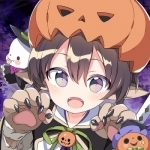
Otogi: Spirit Agents
Games, Entertainment and Stickers
App
"Help wanted! Calling everyone with spirit essence! Become a spirit agent today!" Um… I just have...
Adam Ant recommended New York Dolls by New York Dolls in Music (curated)
Kate Nash recommended track Black Is the Colour of My True Love's Hair by Christy Moore in Live in Dublin by Christy Moore in Music (curated)
Hazel (1853 KP) rated The Face in the Mountain in Books
Dec 17, 2018
<i>This eBook was provided by the publisher via NetGalley in exchange for an honest review
The Face in the Mountain </i>is a children’s picture book written by Tolulope Okudolo as part of the publishing company <i>Magnifying Children’s Horizons</i> vision of developing a world in which children learn about and appreciate nature.
The story is set in the fictional world of Vomper Creek where there is always an abundance of natural activity – that is if tree elves, giants and fairies count as “natural”. Papa and Boma are the only giants living in this area and are responsible for making sure nature does everything it is supposed to do. In fact it was Papa who built the mountains in this region to begin with. However Papa is old, frail and tired after working for over two hundred years. He needs to sleep for a century to regain his energy, thus leaving Boma, at a mere seven years of age, to take on all the important tasks.
So begins the main part of the story: Boma is scared and convinced he is unable to remember Papa’s instructions and tries to hide from all his duties. Without his help nature will not be able to function properly. Inspired by an artist he spies in the woods, Boma carves his father’s face into the side of one of the mountains so that he can always see it. This makes him feel less alone and he is able to complete all his jobs to perfection.
The purpose of this book is to help children discover the inner workings of nature and recognize that many things are connected together. For example the wind is needed to blow the seeds into places where they can sprout, then the rain, sun and soil provide the nutrients the plant needs to grow.
At the end of the story is <i>A Children’s Guide to Natural Beings</i>. This is essentially a glossary of the mythical beings featured in the book. The only issue with this is that calling them “natural beings” implies that they are real whereas there is no concrete evidence of their existence. This could give children the wrong impression about the way nature works.
The final pages of the book include a list of learning activities and discussion questions. These could be attempted in schools, in book clubs or at home with parents as a way for children to experience nature for themselves and examine the meaning of the story and the ways in which they can relate it to their own lives.
Eric Scott Fisher beautifully illustrates the book with realistic drawings that are appropriate for children of all ages. Yet there is a slight publishing issue in that the illustrations and body text do not work together. In some instances the text is overlaid on a picture, which makes it difficult to read.
The reading age of this book is approximately seven to ten year olds however younger children will be able to understand it if it is read to them by an adult. The storyline is not that strong but hopefully its purpose – to educate children about nature – will shine through the narrative.
The Face in the Mountain </i>is a children’s picture book written by Tolulope Okudolo as part of the publishing company <i>Magnifying Children’s Horizons</i> vision of developing a world in which children learn about and appreciate nature.
The story is set in the fictional world of Vomper Creek where there is always an abundance of natural activity – that is if tree elves, giants and fairies count as “natural”. Papa and Boma are the only giants living in this area and are responsible for making sure nature does everything it is supposed to do. In fact it was Papa who built the mountains in this region to begin with. However Papa is old, frail and tired after working for over two hundred years. He needs to sleep for a century to regain his energy, thus leaving Boma, at a mere seven years of age, to take on all the important tasks.
So begins the main part of the story: Boma is scared and convinced he is unable to remember Papa’s instructions and tries to hide from all his duties. Without his help nature will not be able to function properly. Inspired by an artist he spies in the woods, Boma carves his father’s face into the side of one of the mountains so that he can always see it. This makes him feel less alone and he is able to complete all his jobs to perfection.
The purpose of this book is to help children discover the inner workings of nature and recognize that many things are connected together. For example the wind is needed to blow the seeds into places where they can sprout, then the rain, sun and soil provide the nutrients the plant needs to grow.
At the end of the story is <i>A Children’s Guide to Natural Beings</i>. This is essentially a glossary of the mythical beings featured in the book. The only issue with this is that calling them “natural beings” implies that they are real whereas there is no concrete evidence of their existence. This could give children the wrong impression about the way nature works.
The final pages of the book include a list of learning activities and discussion questions. These could be attempted in schools, in book clubs or at home with parents as a way for children to experience nature for themselves and examine the meaning of the story and the ways in which they can relate it to their own lives.
Eric Scott Fisher beautifully illustrates the book with realistic drawings that are appropriate for children of all ages. Yet there is a slight publishing issue in that the illustrations and body text do not work together. In some instances the text is overlaid on a picture, which makes it difficult to read.
The reading age of this book is approximately seven to ten year olds however younger children will be able to understand it if it is read to them by an adult. The storyline is not that strong but hopefully its purpose – to educate children about nature – will shine through the narrative.
EmersonRose (320 KP) rated In The Dark Corner I Stood Alone in Books
Nov 20, 2019
I stood alone in a dark corner. My imagination ran wild.”
In the Dark Corner, I stood Alone is a collection of short stories by author Petra Pavlikova, published on June 12th, 2018. These short stories pull together themes of women and fairytales. Telling stories about strong women in stressful situations, difficult because they are real, and how these women pull through, with a healthy dose of the fantastical. The collection itself is a short and easy read as the stories range in length from 5-20 pages each. I loved the beautiful imagery created in these stories as they each take you on fantastic journeys.
The characters in these stories are such strong and relatable women that I fell in love with each one as I read their story. From beginning to end this book captured this beautiful whimsey that kept me captivated in each story. As you read, each has a distinctive story to tell, but they are all in the same unique voice that has a charming but straightforward tone that captures the fairytale quality splendidly. I think that my favorite story may be The Smell of Sweet Lavender, as it tackles a heart-wrenching tale of trying to be true to yourself and the cost it sometimes has on those that you love most. But each was so unique that they held different messages and meanings to them, that I could see myself having a different favorite depending on what mood I was in at the time. This is definitely one of those books that I could see myself re-reading whenever I just wanted to curl up with a sweet set of stories that allow my imagination wander in the realm of fairies and distant kingdoms. The magic in them creates a tone but the themes within them last without extra flare, making them that much more poignant.
The other thing that makes this book really stand out is the remarkable work of the illustrator Anastasia Telegina. From the small flowers and bright colored pages to the exquisite images of the women in the book, the watercolor work is astounding and fits in perfectly with the wanderlust tone of the writing. Each time I saw that stories full image, I was blown away by the beauty and talent. They play with your imagination rather than entirely putting images in your head, keeping the fluidity of the imagination intact while still creating magnificent images. Creating perhaps what is more what a child might imagine from what is described that a realistic picture. This pair clearly makes an excellent team.
These are stories for almost any age in the themes it tackles and the beautiful way in which they are told. While some of the ideas may be intense for a younger audience, the way in which the stories are told make them accessible to any reader. They are important topics dealt with in a way that is natural and very real world, while held within a slightly more fantastical space. I very much enjoyed reading this book and would definitely recommend it. I will be keeping an eye out to read more from this author. Five Stars.
In the Dark Corner, I stood Alone is a collection of short stories by author Petra Pavlikova, published on June 12th, 2018. These short stories pull together themes of women and fairytales. Telling stories about strong women in stressful situations, difficult because they are real, and how these women pull through, with a healthy dose of the fantastical. The collection itself is a short and easy read as the stories range in length from 5-20 pages each. I loved the beautiful imagery created in these stories as they each take you on fantastic journeys.
The characters in these stories are such strong and relatable women that I fell in love with each one as I read their story. From beginning to end this book captured this beautiful whimsey that kept me captivated in each story. As you read, each has a distinctive story to tell, but they are all in the same unique voice that has a charming but straightforward tone that captures the fairytale quality splendidly. I think that my favorite story may be The Smell of Sweet Lavender, as it tackles a heart-wrenching tale of trying to be true to yourself and the cost it sometimes has on those that you love most. But each was so unique that they held different messages and meanings to them, that I could see myself having a different favorite depending on what mood I was in at the time. This is definitely one of those books that I could see myself re-reading whenever I just wanted to curl up with a sweet set of stories that allow my imagination wander in the realm of fairies and distant kingdoms. The magic in them creates a tone but the themes within them last without extra flare, making them that much more poignant.
The other thing that makes this book really stand out is the remarkable work of the illustrator Anastasia Telegina. From the small flowers and bright colored pages to the exquisite images of the women in the book, the watercolor work is astounding and fits in perfectly with the wanderlust tone of the writing. Each time I saw that stories full image, I was blown away by the beauty and talent. They play with your imagination rather than entirely putting images in your head, keeping the fluidity of the imagination intact while still creating magnificent images. Creating perhaps what is more what a child might imagine from what is described that a realistic picture. This pair clearly makes an excellent team.
These are stories for almost any age in the themes it tackles and the beautiful way in which they are told. While some of the ideas may be intense for a younger audience, the way in which the stories are told make them accessible to any reader. They are important topics dealt with in a way that is natural and very real world, while held within a slightly more fantastical space. I very much enjoyed reading this book and would definitely recommend it. I will be keeping an eye out to read more from this author. Five Stars.
Movie Metropolis (309 KP) rated Snow White and the Huntsman (2012) in Movies
Jun 11, 2019
Snow White has certainly been receiving a lot of attention this year and it’s been hard to ignore two films competing with each other to win the accolade of best cinema adaptation.
Julia Roberts has already starred in sickly sweet adaptation Mirror Mirror and here Kristen Stewart of Twilight fame takes on the lead role in the gritty, dramatic adaptation of the fairytale. But is it a good take on a children’s classic?
Snow White & The Huntsman opens as you would expect with a look back at the aforementioned Princess’ traumatic childhood, from the death of her mother, to witnessing the death of her father King Magnus, it seems like any normal child would’ve had a few problems after this but Snow seems a little more reserved.
Snow White’s father is killed at the hands of her wicked stepmother, played wonderfully by Charlize Theron who really gets her teeth into the role she’s been given and plays the character with a nice dose of evil intertwined with brief moments of sincerity. Those of you familiar with the story will no doubt know that Snow White hides with the seven dwarves to escape the clutches of her stepmother, but more on that later.
Chris Hemsworth, who seems to be getting more and more acting jobs these days does a nice job as the widowed, constantly drunk huntsman, though his accent is a little hard to assess, no doubt done to cover his Australian roots.
Hemsworth is sent by the wicked Queen to kill Snow White so that her eternal youth isn’t threatened but things run less than smoothly as he realises that he is being tricked, he and Snow then decide to go on the run, bumping into the seven dwarves along the way.
The Kingdom in which they live is beautifully realised in fabulous CGI, from the dark forest, to the towering stone walls of the castle and then further into the ‘sanctuary’ a place where people can go to relax and unwind. Fairies, badgers, foxes, rabbits, mushrooms with beady little eyes and moss covered tortoises are amongst the creatures here and ruling over them all is the spirit of the forest, a fabulous and very real looking white stag.
This is, however, where Snow White & The Huntsman falls short. Yes, the CGI is impeccable and yes the acting is good, but it all feels a little bit soulless. It’s all about the frills rather than creating a deep and meaningful story. It has the basics right but it’s impossible to care about the characters because there isn’t enough back-story. Each set piece is interspersed with a little bit of emotion, but it’s not really enough and because of this, the entire film feels disjointed.
This is made worse by the fact the film is stretched to over two hours when there isn’t really enough story to create a two hour film.
Unfortunately, these points detract from what is a wonderful and beautifully realised adaptation of a classic children’s fairytale. To compare it to Mirror Mirror would be unfair as they are both so different. Snow White & The Huntsman is like last year’s Alice in Wonderland, it all looks and sounds great, but is ultimately; decidedly average.
https://moviemetropolis.net/2012/06/07/snow-white-the-huntsman-review/
Julia Roberts has already starred in sickly sweet adaptation Mirror Mirror and here Kristen Stewart of Twilight fame takes on the lead role in the gritty, dramatic adaptation of the fairytale. But is it a good take on a children’s classic?
Snow White & The Huntsman opens as you would expect with a look back at the aforementioned Princess’ traumatic childhood, from the death of her mother, to witnessing the death of her father King Magnus, it seems like any normal child would’ve had a few problems after this but Snow seems a little more reserved.
Snow White’s father is killed at the hands of her wicked stepmother, played wonderfully by Charlize Theron who really gets her teeth into the role she’s been given and plays the character with a nice dose of evil intertwined with brief moments of sincerity. Those of you familiar with the story will no doubt know that Snow White hides with the seven dwarves to escape the clutches of her stepmother, but more on that later.
Chris Hemsworth, who seems to be getting more and more acting jobs these days does a nice job as the widowed, constantly drunk huntsman, though his accent is a little hard to assess, no doubt done to cover his Australian roots.
Hemsworth is sent by the wicked Queen to kill Snow White so that her eternal youth isn’t threatened but things run less than smoothly as he realises that he is being tricked, he and Snow then decide to go on the run, bumping into the seven dwarves along the way.
The Kingdom in which they live is beautifully realised in fabulous CGI, from the dark forest, to the towering stone walls of the castle and then further into the ‘sanctuary’ a place where people can go to relax and unwind. Fairies, badgers, foxes, rabbits, mushrooms with beady little eyes and moss covered tortoises are amongst the creatures here and ruling over them all is the spirit of the forest, a fabulous and very real looking white stag.
This is, however, where Snow White & The Huntsman falls short. Yes, the CGI is impeccable and yes the acting is good, but it all feels a little bit soulless. It’s all about the frills rather than creating a deep and meaningful story. It has the basics right but it’s impossible to care about the characters because there isn’t enough back-story. Each set piece is interspersed with a little bit of emotion, but it’s not really enough and because of this, the entire film feels disjointed.
This is made worse by the fact the film is stretched to over two hours when there isn’t really enough story to create a two hour film.
Unfortunately, these points detract from what is a wonderful and beautifully realised adaptation of a classic children’s fairytale. To compare it to Mirror Mirror would be unfair as they are both so different. Snow White & The Huntsman is like last year’s Alice in Wonderland, it all looks and sounds great, but is ultimately; decidedly average.
https://moviemetropolis.net/2012/06/07/snow-white-the-huntsman-review/
Goddess in the Stacks (553 KP) rated Wintersong in Books
Dec 27, 2018
So I knew this was inspired by Jim Henson's Labyrinth. That's partially why I picked it up, as I love that movie and David Bowie as the Goblin King. I didn't expect to get, basically, Labyrinth fanfiction. That was my first impression. As the book carries on, though, and especially as you get into the second book, it's more like a musician's fever-dream of their favorite childhood movie. There are so many elements taken from the movie, but they are deconstructed and put back together in such unexpected ways.
You'll recognize a line or two from the movie. The fairies still bite. The Goblin King is still beautiful and angular and strange. Liesl's after a stolen sibling. But Liesl and her family live in rural, probably 18th century Bavaria. She is not a spoiled, baby-sitting half-sister. Her grandmother has taught her the old stories, and unbeknownst to her, she's played music for The Goblin King her entire childhood.
The first book concerns Liesl's first foray into the Underground to save her sister when The Goblin King steals her to be his bride. This is where the acid trip starts. If you're familiar with Labyrinth, remember the ballroom scene? With people whirling about and appearing and disappearing and mirrors and the sense of disorientation as it all falls apart? Yeah, that's basically the entire time in the Underground. Though there is a ball scene, and it is especially trippy.
While Liesl manages to save her sister (that's a spoiler, but it isn't much of one), she has a harder time saving herself. Whether she actually does or not could be debated.
The second book of the duology, Shadowsong, has an interesting author's note in the front of it. The author first gives a content warning for self-harm, suicidal ideations, addiction, and reckless behaviors. She goes on to say Liesl has bipolar disorder, and further, that so does she. (The author.) She says Wintersong was her bright mirror, and Shadowsong her dark one. I can see that. Wintersong is a much happier book than Shadowsong, but the story would be incomplete without both books. Wintersong does end in a satisfactory conclusion, but Shadowsong just completes the tale in a way that I, at least, really enjoyed.
Shadowsong also contains more throwbacks to the movie - she falls and is caught by goblin hands; goblins form a giant face that talks to her about the old laws. These things don't happen in the same scene, though.
I loved the elements of music woven throughout the story; Liesl is a composer, and music - her music - is almost a character in its own right. It's definitely a huge plot element. It's in her connection to her brother, and her connection to The Goblin King. It's her way into the Underground, and her way out, and her way to reach back in.
It's an enchanting duology; I don't know if it would be as good for someone who didn't love Labyrinth the way I do. If you dislike the movie, I would probably advise against reading these. But if you like it or have simply never seen it, these would be good, atmospheric books to read in the dead of winter.
You can read all my reviews at http://goddessinthestacks.com
You'll recognize a line or two from the movie. The fairies still bite. The Goblin King is still beautiful and angular and strange. Liesl's after a stolen sibling. But Liesl and her family live in rural, probably 18th century Bavaria. She is not a spoiled, baby-sitting half-sister. Her grandmother has taught her the old stories, and unbeknownst to her, she's played music for The Goblin King her entire childhood.
The first book concerns Liesl's first foray into the Underground to save her sister when The Goblin King steals her to be his bride. This is where the acid trip starts. If you're familiar with Labyrinth, remember the ballroom scene? With people whirling about and appearing and disappearing and mirrors and the sense of disorientation as it all falls apart? Yeah, that's basically the entire time in the Underground. Though there is a ball scene, and it is especially trippy.
While Liesl manages to save her sister (that's a spoiler, but it isn't much of one), she has a harder time saving herself. Whether she actually does or not could be debated.
The second book of the duology, Shadowsong, has an interesting author's note in the front of it. The author first gives a content warning for self-harm, suicidal ideations, addiction, and reckless behaviors. She goes on to say Liesl has bipolar disorder, and further, that so does she. (The author.) She says Wintersong was her bright mirror, and Shadowsong her dark one. I can see that. Wintersong is a much happier book than Shadowsong, but the story would be incomplete without both books. Wintersong does end in a satisfactory conclusion, but Shadowsong just completes the tale in a way that I, at least, really enjoyed.
Shadowsong also contains more throwbacks to the movie - she falls and is caught by goblin hands; goblins form a giant face that talks to her about the old laws. These things don't happen in the same scene, though.
I loved the elements of music woven throughout the story; Liesl is a composer, and music - her music - is almost a character in its own right. It's definitely a huge plot element. It's in her connection to her brother, and her connection to The Goblin King. It's her way into the Underground, and her way out, and her way to reach back in.
It's an enchanting duology; I don't know if it would be as good for someone who didn't love Labyrinth the way I do. If you dislike the movie, I would probably advise against reading these. But if you like it or have simply never seen it, these would be good, atmospheric books to read in the dead of winter.
You can read all my reviews at http://goddessinthestacks.com
